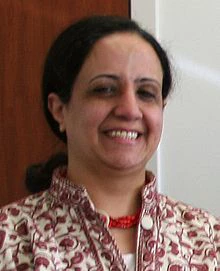 We have just published the third quarterly report of the
Executive Bureau (EB), which is in charge of monitoring donors’ aid and implementing policy reform in Yemen. It reflects the deteriorating political and security situation in Yemen that continues to hinder the country’s macroeconomic stability and prevent it from putting its economy back on track for sustained, inclusive growth.
We have just published the third quarterly report of the
Executive Bureau (EB), which is in charge of monitoring donors’ aid and implementing policy reform in Yemen. It reflects the deteriorating political and security situation in Yemen that continues to hinder the country’s macroeconomic stability and prevent it from putting its economy back on track for sustained, inclusive growth.
The EB began in December 2013 with a mandate to support and monitor the Mutual Accountability Framework (MAF) that was signed by the Government of Yemen and its international development partners in September 2012.
We have been facing a number of challenges since we started. One is the absence of a clear vision, as well as strategies and plans to identify needs and tailor the response programs accordingly. Even when a plan exists, the weak capacity of government institutions and lack of coordination between ministries limits any progress.
Another challenge is the absence of a timeline and of an effective monitoring mechanism to track the status and progress of pledges, projects and policy reform. There has also been no body in charge of overseeing and coordinating the reforms various government agencies were supposed to carry out.
In short, the Yemeni government and its international development partners have put a considerable amount of effort into drafting action plans, frameworks, strategies, project documents and legislation, but very little has translated into results.
I believe that in order to move forward, the attitude of “business as usual” should stop. Yemen’s current process and structures are proving ineffective in terms of delivering the sort of changes we aspire to. Trying to deliver reforms by using large committees lacking in dedication should be discontinued. The same can be said for the handling of key, strategic mega projects through the same processes and structures that handle small projects.
The Yemeni government and its international development partners must make it a priority to agree on a well-defined timeframe for the development and implementation of projects and disbursement of donor funds. A fast-track system should be set up for large infrastructure projects. Stagnant projects should be identified and agreements reached on how to redesign an approach to them.
We have been working closely with the Ministry of Planning to launch the Yemen Aid Management Information System in December 2014; the pilot system is already functional. We have also supported the government by restoring its membership of the Extractive Industries Transparency Initiative, and reached consensus with the private sector on the draft of a Public-Private Partnership law that was submitted to parliament in August 2014. We are also supporting the Ministry of Electricity to develop a detailed action plan to overhaul the power sector in Yemen. This should be ready by January 2015.
These sample achievements show that the challenges facing Yemen are not impossible to address. With strong leadership from the Government of Yemen, a willingness to explore innovative approaches, and true support from the international development partners, Yemen can overcome these challenges and restore social and economic stability.


Join the Conversation